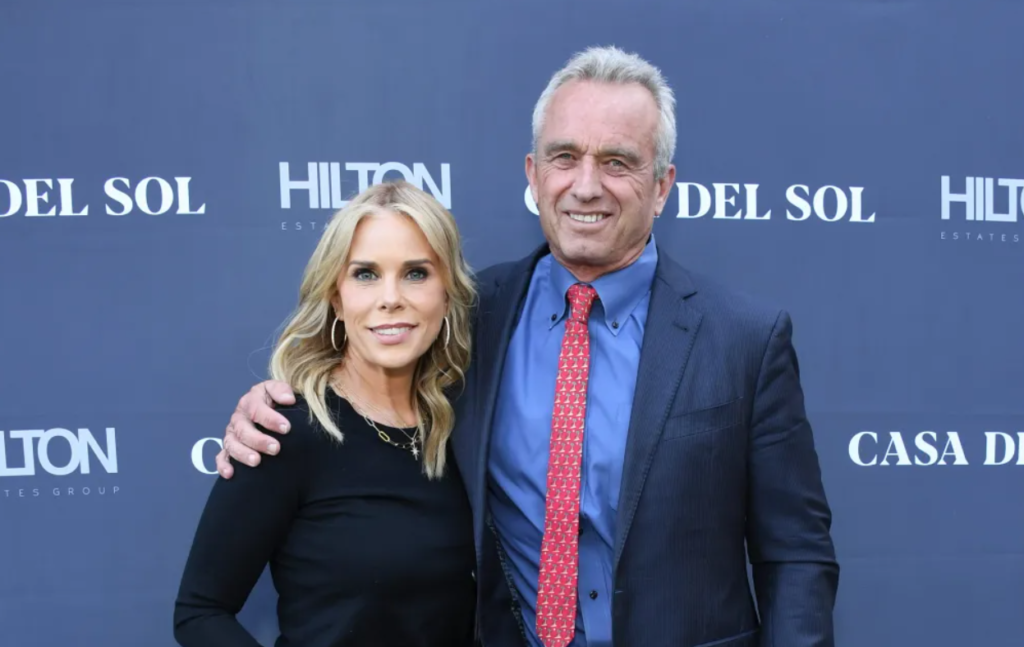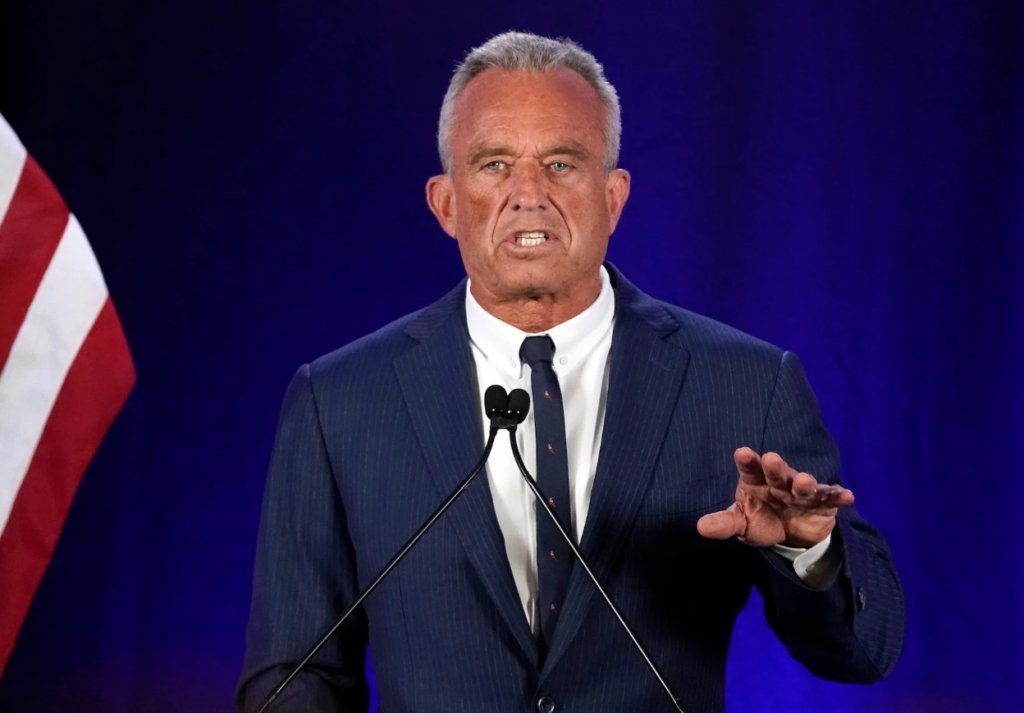Robert F. Kennedy Jr., known more commonly as RFK Jr., is a prominent figure in American politics, environmental activism, and public advocacy. As a member of the Kennedy family, one of the most famous political dynasties in U.S. history, RFK Jr. carries a legacy rooted in service, but his own journey has been defined by his passion for environmental justice and public health issues. Over the years, RFK Jr. has made significant contributions as an environmental lawyer, author, and advocate, often navigating both praise and controversy for his positions on key issues.
In this article, we will explore RFK Jr.’s life, his political career, and the key contributions he has made to environmental protection, public policy, and health advocacy.
RFK Jr.: Bio Profile
| Full Name | Robert Francis Kennedy Jr. |
|---|---|
| Birth Date | January 17, 1954 |
| Age | 70 years old (as of 2024) |
| Occupation | Environmental Lawyer, Political Activist, Author |
| Spouse | Cheryl Hines (m. 2014) |
| Children | 6 |
| Education | Harvard University, University of Virginia School of Law |
| Famous For | Environmental Advocacy, Political Activism |
Early Life and Family Background
Robert F. Kennedy Jr. was born on January 17, 1954, in Washington, D.C., into one of the most powerful and influential families in American political history. He is the third of eleven children born to Robert F. Kennedy and Ethel Kennedy. His father, Robert F. Kennedy Sr., was the U.S. Attorney General under President John F. Kennedy and later a U.S. Senator from New York. Tragically, RFK Jr.’s father was assassinated in 1968 while running for the Democratic presidential nomination, leaving a deep impact on the Kennedy family and the nation as a whole.

Growing up in the shadow of both his father and his uncle, President John F. Kennedy, RFK Jr. was deeply influenced by the family’s values of public service and commitment to civil rights. However, despite being part of a prominent political dynasty, RFK Jr.’s early life was marked by personal struggles, including substance abuse, which he has openly discussed in interviews and writings. These challenges ultimately helped shape his later advocacy for public health and justice.
Education and Early Career
RFK Jr. attended Harvard University, where he earned a Bachelor of Arts degree in 1976. He then went on to study law, earning his Juris Doctor (J.D.) degree from the University of Virginia School of Law in 1982. He also earned a Master of Laws (LL.M.) degree from Pace University School of Law, where he focused on environmental law, which became the cornerstone of his legal career.
His legal training led him to work for the Natural Resources Defense Council (NRDC) and to co-found the Pace Environmental Litigation Clinic, where he represented environmental groups in various cases. RFK Jr. quickly established himself as a fierce advocate for environmental protection, using his legal skills to challenge corporations and government entities over pollution, water contamination, and other environmental issues.
RFK Jr.’s Political Career
Though RFK Jr. has never held elected office, his political activism and influence have been substantial. As a member of the Kennedy family, he has long been associated with the Democratic Party and its progressive platform. Throughout his career, he has consistently championed issues related to social justice, environmental protection, and public health, aligning himself with causes that resonate with his family’s legacy.
In 2005, RFK Jr. was rumored to be a potential candidate for New York Attorney General, a position once held by his father. However, he ultimately decided not to run. Despite this, RFK Jr. has remained politically active, endorsing candidates, campaigning for environmental reforms, and participating in public debates about key policy issues.
More recently, RFK Jr. has become a controversial figure due to his outspoken views on vaccines and public health policies. His advocacy on these issues has drawn significant criticism from both political allies and opponents, but his views have also garnered a following among certain groups, particularly those concerned with government overreach and public health transparency.
Environmental Activism and Legal Work
RFK Jr.’s most significant contributions have been in the field of environmental law and activism. For decades, he has worked tirelessly to protect natural resources, combat pollution, and hold corporations accountable for environmental harm. One of his most notable achievements is his work with the Hudson Riverkeeper organization, where he served as the chief prosecuting attorney. Through this role, he led efforts to restore the health of the Hudson River, which had been heavily polluted by industrial waste and sewage.

In addition to his work with the Hudson Riverkeeper, RFK Jr. also served as the president of the Waterkeeper Alliance, an international organization dedicated to protecting waterways from pollution. Under his leadership, the Waterkeeper movement grew significantly, with hundreds of local Waterkeeper organizations forming across the globe to fight for clean water and environmental justice.
His work in environmental litigation has made him a hero to many environmentalists, as he has taken on major corporations and industries that have contributed to environmental degradation. Whether it’s advocating for clean energy, opposing coal mining practices, or fighting against chemical pollution, RFK Jr. has dedicated much of his life to protecting the environment.
Advocacy on Health and Vaccines: A Controversial Stance
One of the more polarizing aspects of RFK Jr.’s public life in recent years has been his stance on vaccines and public health policy. RFK Jr. has raised concerns about vaccine safety, particularly regarding the potential link between certain vaccines and autism—an idea that has been widely debunked by scientific experts. His views on vaccines have attracted significant criticism from health professionals, politicians, and even members of his own family.
RFK Jr. has been a vocal critic of government agencies like the Centers for Disease Control and Prevention (CDC) and the pharmaceutical industry, accusing them of promoting vaccine programs without sufficient regard for safety concerns. He founded the Children’s Health Defense, a nonprofit organization that advocates for health policies it deems safe and transparent.
Despite the widespread criticism of his vaccine stance, RFK Jr. has maintained his position, arguing that his advocacy is rooted in a desire for more rigorous oversight of public health initiatives. His views have become a rallying point for individuals and groups who are skeptical of vaccines and concerned about government overreach in health care decisions.

While his position on vaccines has sparked controversy, it has also brought significant attention to his broader concerns about corporate influence in public health and the need for transparency in government decision-making.
Personal Life and Family
RFK Jr. has been married three times. His first marriage was to Emily Ruth Black in 1982, with whom he had two children, Robert Francis Kennedy III and Kathleen Alexandra Kennedy. The couple divorced in 1994. He later married Mary Richardson Kennedy in 1994, and the couple had four children together: Conor, Kyra, William, and Aiden. Tragically, Mary Richardson Kennedy died by suicide in 2012, a heartbreaking event that deeply affected the Kennedy family.

In 2014, RFK Jr. married actress Cheryl Hines, best known for her role on the HBO series Curb Your Enthusiasm. The couple continues to be active in various philanthropic and public advocacy efforts.
RFK Jr.’s Legacy and Key Contributions
RFK Jr.’s legacy is complex, encompassing significant contributions to environmental protection, public health advocacy, and political activism. His legal work in defending the environment, particularly his efforts to clean up the Hudson River and fight for clean water globally, has earned him widespread respect within the environmental community.
However, his later advocacy on vaccines has cast a shadow over his reputation in some circles. Despite this, RFK Jr. remains a prominent and influential figure in both environmental and public health debates.
His career reflects a dedication to public service, continuing the Kennedy family tradition of standing up for the marginalized and challenging corporate and governmental power when he believes it threatens public health or the environment.
Conclusion
RFK Jr.’s life and career have been defined by a commitment to activism, particularly in environmental protection and public health. As a lawyer, political activist, and public figure, RFK Jr. has made significant contributions to causes that align with his deeply held values, even when they have led to controversy. His legacy will likely be remembered for both his pioneering work in environmental law and his controversial stances on health policy, making him one of the more complex figures in modern American advocacy. As he continues to speak out on key issues, RFK Jr. remains a figure whose impact cannot be ignored.
follow for more update : journalpress
